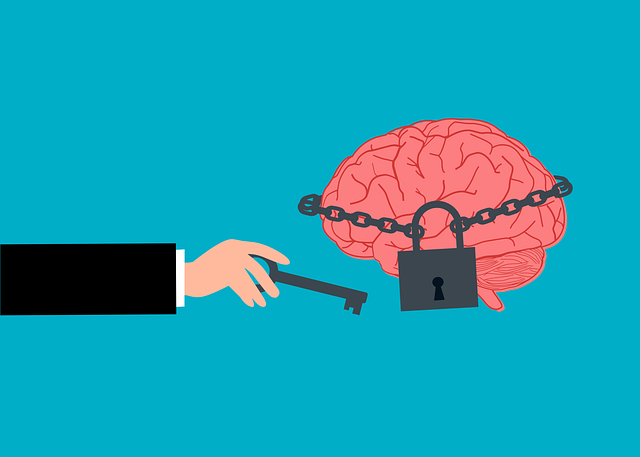Mindfulness practices, integrated into daily routines and therapy for young children, offer a balanced approach to nurturing independence and emotional well-being. Simple exercises like breathing awareness and nature walks teach kids to manage moods and boost self-esteem, setting a foundation for future emotional resilience. Community outreach programs featuring kid-friendly mindful activities in the Mental Wellness Podcast Series engage parents, fostering connected communities and overall mental wellness. Structured stress management workshops provide tools for healthier lifestyles, empowering individuals to prioritize self-care and navigate emotions effectively.
Self-care is not just a trend; it’s essential for optimal mental health, especially in young children. Understanding their unique self-care needs forms the foundation for fostering resilience and well-being. This article explores strategies to navigate this journey, with a focus on mindfulness as a powerful therapy for kids’ mental health. We delve into practical ways to integrate self-care routines, empowering young minds to thrive. By adopting these techniques, parents and caregivers can significantly improve children’s emotional intelligence and overall quality of life.
- Understanding Young Children's Self-Care Needs
- Mindfulness as a Powerful Tool for Kids' Mental Health
- Practical Strategies to Incorporate Self-Care Routines
Understanding Young Children's Self-Care Needs

Understanding self-care needs in young children is a specialized task that requires a delicate balance between nurturing and independence. Young minds are still developing emotional intelligence, making it vital to introduce mindfulness practices early on. Therapy for young children incorporating mindfulness techniques has proven effective in enhancing their ability to manage moods and fostering self-esteem improvement. This approach not only caters to the individual needs of each child but also considers cultural sensitivity in mental healthcare practice, ensuring that every child feels heard, understood, and respected.
By teaching simple yet powerful mindfulness practices, parents and caregivers can empower young children to navigate their emotions. These practices include mindful breathing exercises, body scans, and even engaging in nature walks, all of which contribute to a child’s overall sense of well-being. Encouraging these habits from a tender age prepares them for the challenges ahead and paves the way for healthier emotional development.
Mindfulness as a Powerful Tool for Kids' Mental Health

Mindfulness has emerged as a powerful tool in the realm of therapy for young children, offering a simple yet effective approach to enhancing their mental wellness. Through mindfulness practices, kids learn to navigate and understand their emotions, fostering better emotional well-being promotion techniques. This ancient concept encourages children to focus on the present moment, observing their thoughts and feelings without judgment. By integrating mindfulness into daily routines, such as during mealtimes or before bed, children can develop a stronger sense of self-awareness and calmness.
The impact of mindfulness extends beyond individual benefits; it can also be incorporated into community outreach program implementations to create a supportive environment. A Mental Wellness Podcast Series Production featuring mindful exercises tailored for kids can engage parents and caregivers, encouraging them to practice alongside their children. This collaborative effort not only promotes emotional well-being in the younger generation but also fosters a sense of community and connection, contributing to a healthier, happier society.
Practical Strategies to Incorporate Self-Care Routines

Incorporating self-care routines into your daily life is essential for maintaining both mental health and overall wellness. A practical strategy to begin this journey is through mindfulness practices, which have been shown to be incredibly effective in managing stress and improving focus. Simple techniques like deep breathing exercises or guided meditation can help children (and adults) process their emotions more effectively. Therapy for young children often incorporates mindfulness into its sessions, making it an accessible tool for parents to use at home.
Additionally, structured stress management workshops designed for both individuals and organizations can provide valuable insights and tools. These workshops often cover topics like time management, setting boundaries, and prioritizing self-care, all of which contribute to a healthier lifestyle. Mental wellness is not just about the absence of mental health issues; it’s about cultivating positive habits that enhance our daily experiences. Mental health education programs designed for various age groups can empower individuals to take charge of their emotional well-being, fostering resilience and self-care awareness from an early age.
By understanding and addressing young children’s self-care needs, we can lay a strong foundation for their mental health and overall well-being. Incorporating mindfulness practices, such as simple breathing exercises and mindful play, has been shown to be an effective therapy for young minds, fostering resilience and emotional regulation. With practical strategies like establishing consistent routines and creating calming spaces, parents and caregivers can empower children to develop healthy habits that will last a lifetime. Through these efforts, we not only nurture individual growth but also contribute to a more compassionate and aware society.








